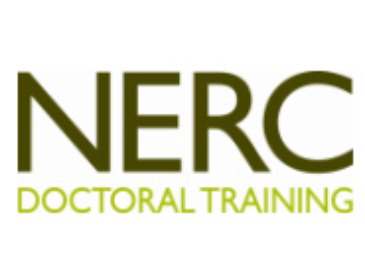The partnership, which will be launched at The Natural History Museum on 22 January, brings together over 30 research, industrial and third sector organisations to support and deliver doctoral training across all areas of the environmental sciences and marks a significant milestone for the GW4 Alliance.
The NERC GW4+ DTP, which is led by the University of Bristol, is the largest of the 15 DTPs to be created as part of a £100M investment by the Natural Environment Research Council(NERC) designed to pool research expertise in environmental science and train environmental science PhD students.
From examining climate change and its impacts, to exploring natural resources and understanding natural hazards, each successful postgraduate student will receive in-depth, advanced research training, as well as training in professional and transferable skills.
Speaking ahead of the launch at The Natural History Museum, Professor Guy Orpen, Pro Vice-Chancellor for Research at the University of Bristol and Chair of the GW4 Board said: “This event marks an important milestone for the GW4 Alliance and the beginning of a very exciting NERC DTP which builds on a unique feature of the GW4 – the quality and scale of our collaborative doctoral training.
“The breadth of research expertise and the comprehensive experience in doctoral training provided through the GW4 Alliance, the Research Organisation Partners and associate partners will deliver outstanding opportunities for doctoral students across the whole range of NERC sciences."
A key component of the GW4 + DTP programme involves students working with and undertaking research projects that are directly relevant to non-academic partners.
The NERC GW4+ DTP involves a partnership between the GW4 universities and six of the UK’s leading research organisations (British Antarctic Survey, British Geological Survey, Centre for Ecology and Hydrology, Met Office, Natural History Museum, Plymouth Marine Laboratories) as well as 25 Associate Partners, drawn from research, industry and the third sector including: the Environment Agency, Welsh Government, Natural Resources Wales. BHP Billiton, the Food and Environment Research Agency, Wessex Water, South West Water, Unilever, Shell and Syngenta.
The launch will be attended by representatives of all partner organisations including senior representatives from NERC.
Professor Duncan Wingham, Chief Executive of NERC said: “NERC’s new Doctoral Training Partnership (DTP) programme reflects our renewed commitment to postgraduate training and partnership building as outlined in the strategy.
“NERC DTPs will offer postgraduate studentships and training across the full range of NERC's disciplines, and in multidisciplinary environments, helping to create a strong and active community of students that are able - and encouraged - to integrate, work, and learn together.”
Under the programme, a minimum of 30 per cent of the students will work with non-academic partners. This is intended to provide students with the valuable industry experience they need to enter a wide range of careers as well as strengthening research links between universities and stakeholders.
The GW4 Alliance has reinforced its commitment to postgraduate research training by committing additional studentships to the Doctoral Training Partnership (DTP) award.
A total of 45 studentships have been added by GW4 to the existing 140 awarded by the NERC DTP over its nine-year duration. The total value of this investment exceeds £15M.
Further information on the NERC GW4+ DTP partners, available projects and how to apply is available at: www.bristol.ac.uk/gw4plusdtp
